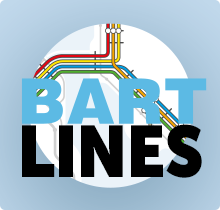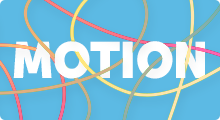The kitten-shaped egg timer on the corner of the mattress beeps and they switch positions. Now she is cradling him. His head rests on her slender left arm; her right arm she drapes around his waist ... [+]
Dad constantly monitors the train conditions. I rarely see him sleep, but when I offer to watch over the security cameras and onboarding at stations, he shakes his head. "This is too tricky for you. One mistake and someone could be dropped off in the wrong time period or dimension. People pay good money for their tickets. We have a reputation to uphold."
"She's just searching for things. It was her original destination. But once she wraps up her affairs, she'll be back, safe and sound. Everything will be perfect," Dad said.
Eleven years have passed since then. I used to sit by the window, watching passengers board and leave the train, trying to pick out Mom's distinctive long braid, her rounded chin, her dark brown eyes, her penciled-in eyebrows. But we never stopped anywhere close to 1960s Fuzhou China. We spent two years ferrying tourists from a future where the glaciers had all melted to the Arctic circle and Antarctica. We transported desperate homebuyers to San Francisco twenty years ago so they could try their luck at home ownership. Dad looked down on those passengers: "I once had an investor go back twenty years so he could invest in big tech stocks. He bought up so many shares that he butterfly-affected the share price. It ever reached as high a price as in his original lifetime."
I'm not sure why Dad can't apply his same logic to Mom. She's probably a different person now; maybe she doesn't even exist. I've grown to accept Dad's impenetrable reality distortion field.
Dad is planning next week's routes to maximize fuel efficiency. We need to stop by several active sunspots and Japan during the Edo Period, places on opposing sides of the space-time mapping. Dad tsks, "I don't see why they can't open a new train to handle intergalaxy requests. This adds so much overhead." He taps his pen on his forehead, increasingly decorated with creases and lines as he frowns his thick eyebrows further and further. I don't disturb Dad when he's in his work-frustrated modes. The last time I did so, he threw a clipboard at me, the metal bit hitting my forehead and scratching my eyelid. After the clipboard clattered to the ground, he asked why I couldn't study right and said he'd been solving competitive math puzzles in record times when he was my age. I didn't know what my math skills had to do with his route planning, but that's irrelevant during his fits.
I sit by the window, watching passengers board. Kids jump over the gap between the platform and train. An old woman trails behind the group scrambling to get in. A braid of long, gray hair swings behind her back. She collapses a bamboo sun umbrella as she files in. I catch her face through the camera: even though blemishes spot her face and the edges of her eyes crinkle like aluminum foil, I recognize the dark brown eyes, the familiar traces of features beneath sagging skin and accumulated layers of fat. Dad told me we age differently on the train. Once conductors reach adulthood, they can serve their terms for eternity.
I pull on my gray hoodie and snatch Mom's hair tie from my box of keepsakes and run to the passenger car the woman disappeared into. I shimmy through folks crowded by the door to the car, pushing and shoving and trying to find the familiar figure and face. I can hear curses directed at me, and I blush red after realizing I'd forgotten to use the common courtesies Dad taught me.
The woman sits in the corner of the car, where the seats are reserved for the elderly and pregnant. I stand in front of her, and she looks up.
"Nu ‘er, you've grown so well," she cries, reaching for my hand and rubbing her thumbs on my palms as though she can't believe I'm here.
I have so many questions I want to ask her, but all I can do is cry. I don't know why I'm crying. Last I cried was when my eyes watered after Dad knocked his hand into my face during a particularly prickly moment when a passenger had taken a ride from the Titanic to Disney World without paying. I sit down next to her, wiping tears with one sleeve and then other, swallowing mucus and snot, trying to bury my cries.
Mom speaks softly, continues to rub my hands, and answers my questions without me asking. She tells me I have an elder sister who died in one timeline, the baby stolen from the crib and suffocated and buried in a hole deep in the rice fields while Mom was still sleeping. She was supposed to give birth to a son. Her in-laws threatened divorce if she didn't comply. Instead, she scavenged for every jade bracelet and gold necklace gifted from her parents, every jug of cow's milk and cured pork meat, which were stingily rationed, her precious calligraphy set and wedding qipao, and sold them for a train ticket.
"Your sister was smaller than you," Mom whispers. "But she's a grown woman now. I sent her to my Auntie before my in-laws could get to her. She did so well: tested into top universities, studied abroad in America. I hear everything is big and great there: cars where you can lie down, food that fills your stomach for days."
"I don't know," I reply, breaths calmed enough I can speak. We've been to America many times, but the decades and centuries are all jumbled in my head. "Dad is here, if you want to see him."
Mom shakes her head. "I don't think he'd appreciate this me."
"Maybe." I say, unwilling to admit how old she's gotten, to see Dad's reaction to her current face. I wonder if this is how I'll look when I age, not that I can age on the train. Even my hair takes forever to grow past my shoulders—I can barely scoop it into a ponytail.
"What are the next few stops?" Mom asks. "With this kind of a crowd, I recall your Dad prefers to fit a bunch of dimensions clustered closely together."
"I think they're mostly different timelines in San Francisco. We have another crop of gold diggers trying to capitalize on Silicon Valley before its boom. And also one stop at Penn Station for those with changing lines."
"I hear the cities are fun," Mom smiles. "What do you say about choosing a stop?"
"The next stop. Whatever it is," I say. We wait for the train to slow, the doors to slide open, the automated voice to tell us to remember our belongings.
I leave Mom's hair tie behind.



